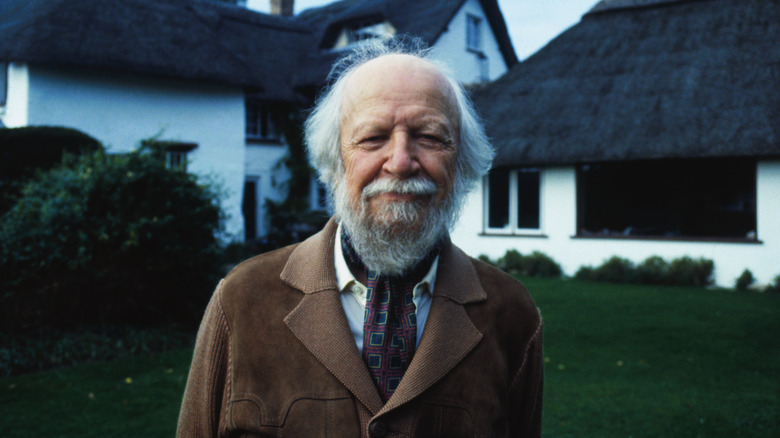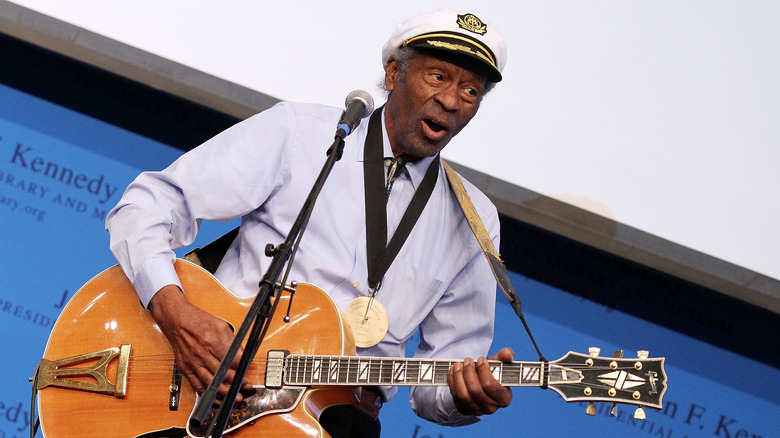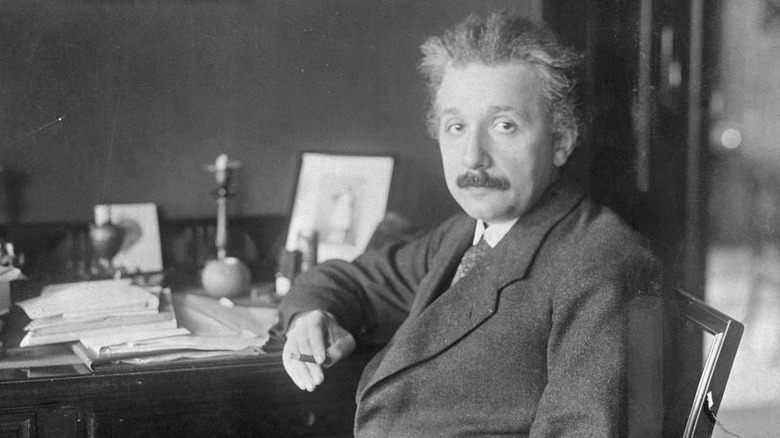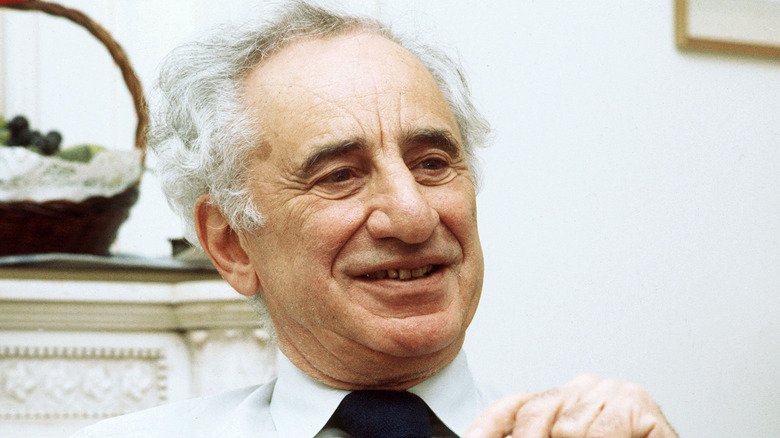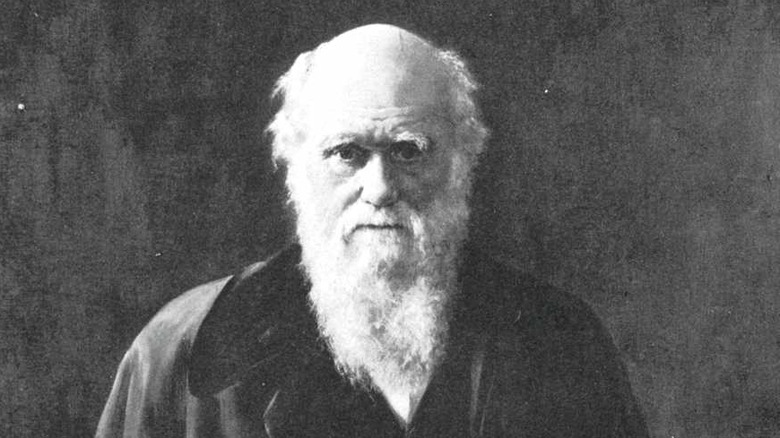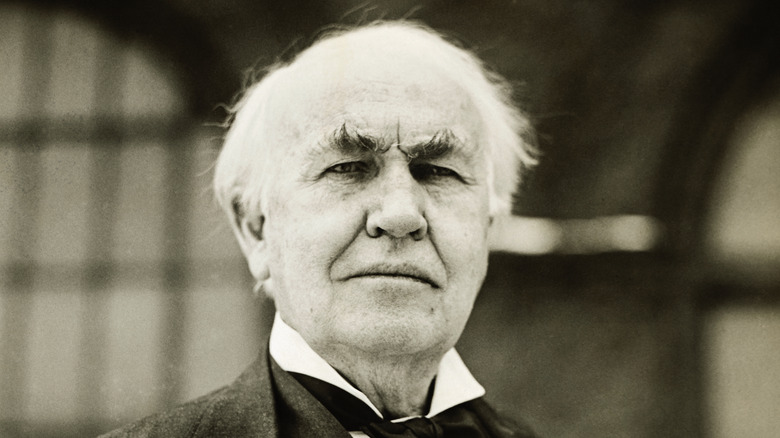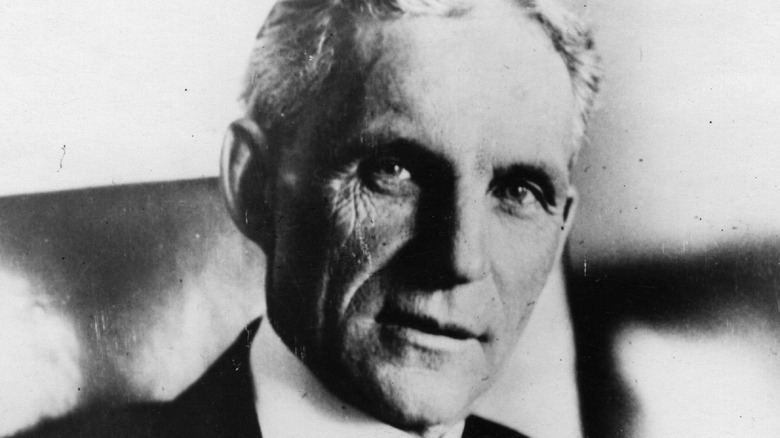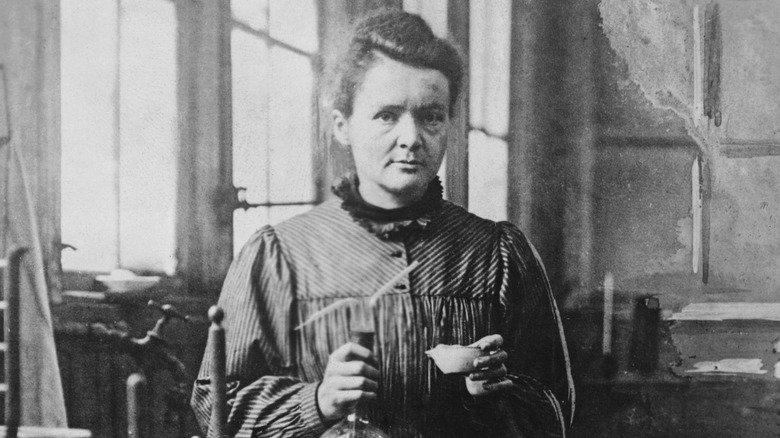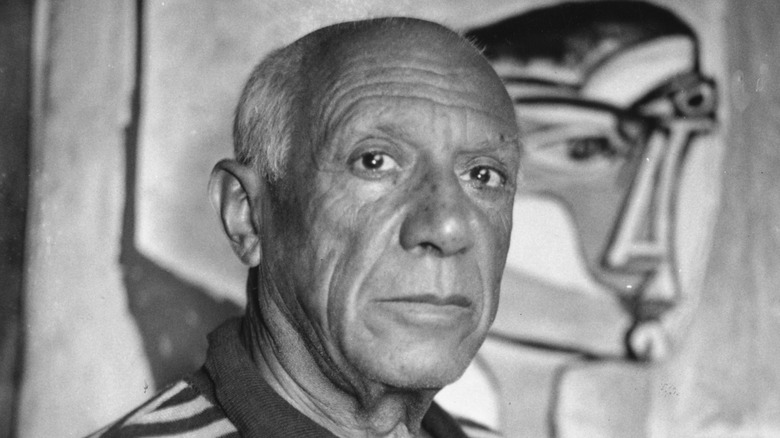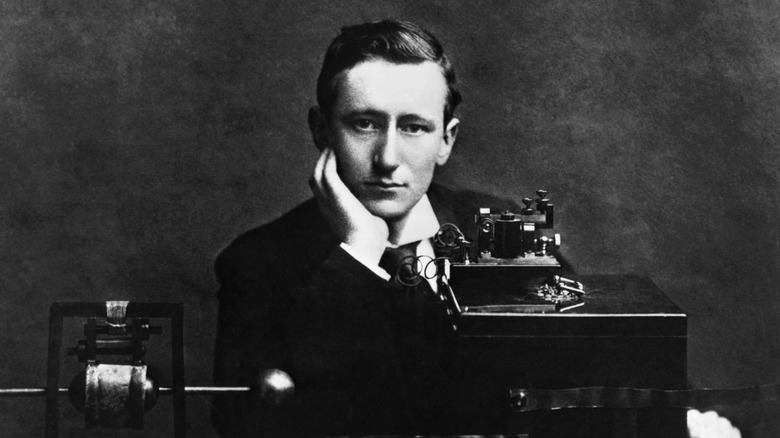Geniuses Who Were Actually Terrible People
Without geniuses, the world would look nothing like it does today. One brilliant person can change the course of history, create amazing art, revolutionize an industry, or simply do things us normies could only dream of. But the ironic thing is that the world might actually have been a much nicer place if some of the most intelligent, talented, or influential people of all time had never existed. Sure, anyone can be a jerk, but these big brains seemed to take it to the next level.
From Isaac Newton, whose intense hatred for a rival nearly erased an important scientist from our history books, to Winston Churchill, whose racism contributed to the deaths of 3 million people in India even as he helped lead Allied forces to victory in World War II, here are some brilliant people who engaged in awful behavior.
Bobby Fischer hated Jewish people
Bobby Fischer was possibly the greatest chess player of all time. He was definitely the best American chess player ever, and he proved it when he became the first (and still only) Yank to be crowned official world chess champion after checkmating Boris Spassky of the U.S.S.R. in 1972. But in between his matches he liked to hate on Jewish people.
The supreme irony was that he was probably Jewish himself. But you were in for a world of pain if you brought that up. According to the Jewish Press, Fischer thought Jews were "filthy, lying bastard people." He was less than thrilled when his biography was included in the Encyclopedia Judaica and demanded it be removed. He must have assumed everyone would want to convert to Judaism just because they were casually browsing this book and saw his name, and he wasn't having that. He told the publishers to "try to promote your religion on its own merits -– if indeed it has any."
If that wasn't enough, Fischer also managed to become a Holocaust denier who was obsessed with the Third Reich. Not content to keep those views to himself, he passed out pamphlets about it in front of the Los Angeles Public Library. He read such hate-filled "classics" as "Mein Kampf" and "The Protocols of the Elders of Zion." He had a large collection of Nazi memorabilia, and rumor had it he even slept with a picture of Hitler over his bed.
Isaac Newton basically erased a guy from the history books over a rivalry
Isaac Newton is up there with the greatest scientists of all time. He managed to invent calculus, figure out gravity, and come up with three laws of motion among his many other significant achievements. Most of us probably would have given up science after doing just one of those things, knowing our name was already going to be in the history books.
You know whose name is barely in the history books? Robert Hooke. And that is completely down to Newton trying to wipe him off the face of the planet over a little feud. Hooke was a brilliant scientist too, so much so that one of his biographers referred to him as the "English Da Vinci." But he and Newton disagreed on whether light was a particle, and this disagreement turned into some seriously vicious correspondence between the two of them. It got even worse when Newton published his theory of gravity. Hooke had done work on it himself and thought he deserved some of the credit, but Newton wasn't about to give him any. Instant hate.
After Hooke died, Newton was able to start tarnishing his reputation. Soon the narrative surrounding him was that he was "bitter" and took credit for other people's work. There's even a persistent rumor that Newton was responsible for destroying the only painting of Hooke that existed because halfway measures are for losers.
Nikola Tesla believed in eugenics
It's dangerous to say anything even moderately negative about Nikola Tesla on the internet. He's become almost the patron saint of the science side, and people like to hold him up as the good guy in his fights with men like Thomas Edison and George Westinghouse. But as Smithsonian Magazine reminds us, at the end of the day he was just a dude, and no one is perfect.
What Tesla was really good at was predicting how things would be in the future, to the point that it makes you wonder if clairvoyance actually exists. Despite that, we can only hope he was totally wrong on his theory that eugenics would be all the rage by 2100.
In 1935, right as the Nazis were really starting to find their terrible groove, Tesla was writing some predictions for the magazine Liberty. And one of them was that we needed to stop making people he thought were inferior. He thought we did a good job of this in the past thanks to the survival of the fittest, but humanity had gone all soft and needed to start weeding out "less desirable strains." Sure, the sterilization of criminals and insane people that was taking place in some areas was a start, he said, but we also needed to make marriage more difficult to make sure only good people were mating with each other. Marriage was hard enough to prevent at least one not-so-good person from reproducing: Tesla never married.
John Lennon was a wife beater
John Lennon is one of the greatest musicians of all time. He emanated cool, whether it was in his mop-haired days or lying in bed talking about peace with the worst bed-head ever. He is responsible for some of the greatest songs of all time, both with the Beatles and as a solo artist. He was also a huge, gigantic, unequivocal jerk.
As recounted by Vice, Lennon's list of faults is long. He was a cheater, having a relationship with Yoko Ono while married to his first wife, Cynthia, but then he had an 18-month affair with his assistant while he was with Ono. He was a dreadful father to his first son, Julian, smacking him around for such terrible childhood crimes as not having perfect table manners. (And Julian was 5 when John left, so we're talking about a toddler here.) But perhaps the worst of his crimes was that, at least in his younger days, he had a habit of hitting women.
This isn't something that's up for debate. It's not a he-said-she-said situation, and it's not even close. Lennon admitted it himself in the Playboy interview that came out two days before he was killed. He said he hit "any woman" and then tried some weird introspection that just made it worse. He said it was the reason he was always preaching peace, because "it is the most violent people who go for love and peace." Perfect wife beater logic.
William Golding was an attempted rapist
William Golding is most famous as the author of "Lord of the Flies," which you almost certainly had to read in school and probably led to your fantasy of being trapped on a desert island with some of your classmates where you would be in charge of the conch shell. One famous book wouldn't be enough to call him a genius, except he also won the Nobel Prize for Literature, and they don't hand those things out to just anybody.
According to his own writings (recounted in The Guardian), Golding had some serious issues. He tried to explain his "monstrous" side to his long-suffering wife in a memoir that wasn't read by anyone else until after he died. For one, he had a major problem with alcohol. But even when he was younger he made some bad choices, like when he attempted to rape a 15-year-old girl.
He was 18 and on a break from studying at Oxford. In his memoir he tries some intense victim-blaming, saying the girl was "depraved by nature" and "sexy as an ape." It's not clear what kind of apes he'd been looking at, but regardless, we're talking about a child here. Children are not sexy. He claimed he could tell she "wanted heavy sex," which is why he thought it was okay to try and force himself on her. He must have been so confused when she ran away.
Father of rock 'n' roll Chuck Berry served time and was a Peeping Tom
It takes a pretty talented person to create a whole new genre of music, and Chuck Berry did that. (With a little help, obviously, from his cousin Marvin and Marty McFly.) This "new sound" would go on to dominate the charts for decades.
But in his personal life, Berry could not stop screwing up. While he was still a teenager, he committed armed robbery and was sent to jail for three years. At 33 years old, he took a 14-year-old girl across state lines. That isn't illegal in and of itself, but she claimed to the police that there was something sexy going on between them, which is illegal under the Mann Act, which says you can't cross borders with minors if it has an "immoral purpose." He spent another 20 months in federal prison for that one.
But prison must not have taught him a lesson. The Telegraph reported that he settled a class-action lawsuit in 1990 with 59 women who accused him of taping them while they went to the bathroom in his Missouri restaurant. The case never went to trial because he paid out $1.2 million, but reports stated that cops had found hidden camera tapes of women in his house. We're not sure what kind of weird fetish makes you like seeing people pee, but it must inspire some great music.
Steve Jobs was a tyrant who screwed over his friend
Apple visionary Steve Jobs could have his own very long list of terrible things he did. While he might have been the brains behind some of the most popular electronics of the past few decades, he was a huge jerk to almost everyone he came into contact with.
Walter Isaacson's biography "Steve Jobs" listed enough examples to last a lifetime. Once he thought some employees were working too slowly on a project so he burst into a meeting with a string of profanities we can't repeat here. When he was in charge at Pixar he fired people with no notice and no severance pay. He screwed over one of Apple's first employees by never giving him stock options. He asked at least one potential recruit if he was a virgin during his interview. And more.
He started as he meant to go on. When he was young and working for Atari he was given a task to do and offered a large bonus to do it. Instead he got his friend Steve Wozniak to do it and lied to him about how much they were being paid, only giving him a percentage of the base fee and keeping the bonus for himself. But he was perhaps worst to his daughter Lisa, denying paternity for a long time. She ended up on welfare while he enjoyed his millions. But hey, at least we all have cool phones now, right?
Winston Churchill's racism ended up killing a lot of people
It's not many people who are so great they get to be on money. But Winston Churchill is such a hero that he got his face on the 5 pound note and was once voted the greatest Briton of all time. He was a brilliant leader in wartime and was critical in helping defeat the Nazis. Which is weird considering a lot of his views sound shockingly similar to Hitler's.
Churchill was a Class A racist. And because he had lots of power, his racism got people killed. According to the Independent, this was at the time when the U.K. ruled India, and Churchill hated Indians. He called them "a beastly people with a beastly religion." This might be part of the reason he decided to let 3 million of them starve to death. During a famine he continued to export huge amounts of rice that would have helped the hungry people, and he even turned down aid offers from other countries to India.
But it wasn't just Indians. He hated everyone equally. Once he talked about spearing tribesmen in Afghanistan. When he was in charge of Kenya he set up concentration camps that saw cases of mutilation, rape, and castration. And he believed in the use of poison gas against Middle Easterners. If you're British, you've probably never wanted to spend money so fast just to get it out of your pocket, have you?
Albert Einstein was a really terrible husband
Albert Einstein is pretty much required to be on any list of geniuses. He was brilliant and came up with tons of new science, most of which goes completely over laymen's heads. Let's go with E=mc2 and leave it there.
But one person who probably didn't think Einstein was all that was his long-suffering first wife, Mileva Maric. According to The New York Times, his correspondence showed he could be brutal to her and cruel to their two sons. It was one letter that really laid out just how bad things had gotten. After their marriage started deteriorating, Einstein thought it would be a good idea to send his wife a list of all the rules she would have to follow if they were going to stay married. And the list (via Lists of Note) has "jerk" written all over it.
She still had to do his laundry and make him three meals a day, which he would eat alone because screw you, wifey. His space had to be cleaned but she had to leave it when told. And their marriage was going to be completely devoid of intimacy which she was not allowed to ask for. Plus, she had to shut up when he told her to. Despite all this she was never allowed to say anything rude about him to the kids. No wonder she left Einstein a few months later.
Elia Kazan got people blacklisted
Elia Kazan was the brilliant director behind classics like "On the Waterfront," "East of Eden," and "A Streetcar Named Desire." He helped found the prestigious Actor's Studio and helped launch many careers.
The American Scholar has the real story, though. In 1952 he was called in front of the House Un-American Activities Committee and asked about a Communist group he had been a part of at a prestigious theater. Possibly to save his own butt, he named names: eight of them, to be exact. He didn't feel bad about doing this and even took out an ad in The New York Times two days later, encouraging others to do the same thing he had. The people he had named were completely blacklisted, their careers ruined. Kazan's star would continue to rise.
Only three years later he would win the Oscar for best director for "On the Waterfront," a movie about how being a snitch is totally cool. At the time there was no controversy, but that would change when he was given the Oscar for lifetime achievement in 1999. Actors including Sean Penn took out an ad decrying the decision. On the night, hundreds of protesters were outside the broadcast. When he received the award, actors like Ed Harris and Nick Nolte refused to stand for him or even clap.
Kazan never felt bad about what he did, writing in his 1988 autobiography that he did it out of his "true self."
Charles Darwin's theories included plenty of sexism
By many metrics, Charles Darwin was a reasonably swell guy. He traveled the world, opposed slavery, and came up with a little thing called the theory of evolution. However, his niceties only extended to one-half of the human population. Well, the white human population, that is — despite his abolitionist views, he had no problem including comments about "civilized" and "savage" races in his work.
Darwin's scientific legacy is peerless, but his work also included a surprising amount of rampant sexism. In "The Descent of Man" — the hotly anticipated 1871 sequel to "Origin of Species" — he turned his gaze on humanity and openly applied his "survival of the fittest" theories. The work contains various extremely unsavory views about women being invariably weaker than men on all fronts, including intellectual — and that they are incapable of even producing works of art that could compete with male artists.
A particularly weird aspect of Darwin's public views was that he interacted with people from all over the world, and his private correspondence indicates that he wasn't exactly hostile toward women in person. This and his historical willingness to shake the status quo with his work make it doubly strange that he was willing to let the wider Victorian-era views affect his public opinions — enough to spit venom at everyone who wasn't a white male, no less.
Thomas Edison electrocuted animals and a person to undermine a rival
The shady side of Thomas Edison pretty much guarantees him a place on the list whenever geniuses with an unpleasant side are discussed ... but not necessarily why you might think. His usual pop culture role as the villain in the current wars against Nikola Tesla is somewhat embellished since Tesla — or rather, the guy he sold his alternating current patents to, George Westinghouse — actually won the wars. Tesla himself had already moved on.
Edison's questionable nature, however, was present in the tactics he used in the losing battle. To discredit AC, his employees started performing public electrocution displays, killing numerous dogs, cats, horses, cows, and even an elephant this way. The ultimate salvo in Edison's battle against AC came in 1887, when a man called Alfred Southwick asked him about electricity as a humane execution method. Edison initially expressed a dislike for the death penalty, but soon abruptly changed gears and recommended AC as an amazing way to kill people.
Edison's motive, of course, was to convince the public that AC was far more dangerous than his direct current. To Westinghouse's horror and despite his attempts to save the prisoner who was sentenced to be the first man to die in it, Edison was soon pulling the strings behind the construction of the first electric chair — powered with alternating current, of course. It took the prisoner over four horrific minutes to die.
Prince was an ultra-demanding guy who could carry a grudge
Prince Rogers Nelson was a bona fide musical genius who excelled in all aspects of popular music, from production to stage presence to guitar work, and a big enough star to feud with Michael Jackson to boot. Was he a nice guy, though? That's a whole other story.
Prince was an extremely private and controlling person who ran his kingdom like a highly demanding master. "He ran through people," Prince's former publicist Chris Poole told The Guardian. "There were one or two who didn't work again after working with Prince. He was relentless. I'd get calls at two in the morning after he had slept all day. It's untrue to say he wouldn't listen — he would if you stood up to him — but he could be very intimidating in his behavior."
And that was just the people working for him. He also got married and divorced multiple times, and his decades-long professional disputes with various record companies and digital distribution services are the stuff of legend. All in all, Prince had attitude to spare, and many celebrities he couldn't stand felt it over the years. In some cases, such feuds could become extremely hostile — at least according to Sinead O'Connor, who described a strange visit to Prince's Hollywood home where the artist attempted to force-feed her soup and beat her up in a rigged pillow fight.
Henry Ford was a massive antisemite
American industrialist Henry Ford had a dark side that had nothing to do with the way he revolutionized the way cars are made. While he was a business genius, he didn't exactly use his vast power, wealth, and influence for good. Instead, Ford became globally known as an open and vocal antisemite who blamed virtually every major problem he could think of on the Jewish people and published copious amounts of antisemitic propaganda to spread his conspiracy theories.
"Throughout [his newspaper] The Dearborn Independent, Ford published articles that would refer to Jews in every possible context as at the root of America and the world's ills," Professor Hasia Diner, director of the Goldstein-Goren Center for American Jewish History, told PBS. "Strikes: It was the Jews. Any kind of financial scandal? The Jews. Agricultural depression? The Jews. So 'the Jew,' in a way, became the symbol of a world that was being manipulated and controlled."
Ford was such a prolific propagandist that he even harnessed his main business to spread the hate, as the printed antisemitic material was available in Ford dealerships all over the country. To illustrate just how bad he was about this, Adolf Hitler was such a fan that he had a picture of Ford on his office wall at one point — and name-dropped the American in his infamous "Mein Kampf."
Marie Curie broke a home
Marie Curie was a determined scientist who broke glass ceilings and new ground alike. Born in Poland as Maria Skłodowska, she made numerous advancements in the fields of chemistry and physics, winning a Nobel prize for each. Working with her husband, Pierre Curie, and later continuing on her own, she discovered the elements radium and polonium, created the term "radioactivity," and achieved numerous other things before dying at age 66 from aplastic anemia caused by radiation exposure.
Curie's work in radioactivity has given her a well-deserved reputation as a pioneering scientist ... but just listing her accolades would leave out that one time she had an affair with a married guy. Four years after Pierre was fatally run over by a horse cart, Curie became involved with scientist Paul Langevin – a married father of four. The pair had a full-on secret romance set-up, with a dedicated hook-up apartment and everything. However, word soon got out ... and then, Langevin's wife found some of the illicit lovers' correspondence and promptly sold it to a tabloid.
The ensuing scandal was so major that Langevin separated from his wife and Curie was asked not to accept her 1911 Nobel Chemistry Prize in person. She attended anyway, but felt so bad about the whole situation that she used the Skłodowska name for some time — both to avoid journalists and because she didn't think she deserved to use the Curie name.
Erwin Schrödinger was a serial womanizer
Austrian physicist Erwin Schrödinger is known to the general public for the Schrödinger's Cat thought experiment, which he crafted to refute a particular aspect of quantum theory. His original version is somewhat more ruthless than the cutesy "cat in a box" image, as it sticks a radioactive atom and a poison container in the box alongside the fuzzy feline. Likewise, Schrödinger's personal life was messier than one might expect from a scientist.
Schrödinger's official Nobel Prize page remembers to mention things like his dad's work on plant phylogeny, but it's conspicuously silent about the physicist's own rampant womanizing. By the time he left Austria for Ireland after growing discontent with the Nazi regime in 1939, Schrödinger had already failed to secure a gig at Oxford when he brought both his wife and his mistress with him. In Ireland, he went on to have a series of trysts with an attitude that, by his own admission, held little regard for the well-being of his partners. "Poor things," Schrödinger wrote (via The Irish Independent). "They have provided for my life's happiness and their own distress. Such is life."
Schrödinger recorded his "conquests" in notebooks and was quite unashamed of how he went about his actions. Notably, he kept inappropriately touching a 14-year-old girl he was teaching, ultimately having an affair with her when she turned 17 ... and immediately abandoning her when she got pregnant.
Pablo Picasso destroyed his family and lovers
From "The Old Guitarist" to "Guernica," the genius and high output of Spanish artist Pablo Picasso spanned many decades and stylistic periods. As great as someone of his stature is for the art world, however, Picasso's family was none too thrilled about him for one simple reason: He held a terrible influence over them.
"No one in my family ever managed to escape from the stranglehold of this genius," the artist's granddaughter Marina Picasso wrote in her book "Picasso: My Grandfather" (via The Paris Review). "He needed blood to sign each of his paintings: my father's blood, my brother's, my mother's, my grandmother's, and mine. He needed the blood of those who loved him." Dramatic as these words may seem, there's no denying that Picasso has a reputation as a notoriously cruel man and several members of his family died by suicide.
Picasso's family members suffered from his influence, but even more famous is his terrible behavior toward his assorted lovers and muses. A serial cheater and abuser, the artist not only treated women in a horrific fashion — he was also completely open about his attitude. "Women are machines for suffering," he once told one of his mistresses, Françoise Gilot (via Telegraph). Fortunately for Gilot, she eventually left the relationship and married a man with a somewhat more positive immediate influence on his fellow humans: Jonas Salk, creator of the polio vaccine.
Guglielmo Marconi was a fascist who worked with Mussolini
A lot could be said about the man credited with inventing the radio, Italy's own Guglielmo Marconi. A Nobel Prize winner and a pioneer of wireless communication systems, he certainly made his mark in history. However, a certain Nikola Tesla had radio patents that preceded Marconi's by several years, and in 1901, Marconi stole Tesla's spotlight by managing to successfully send and receive a transAtlantic radio signal before the Serbian. He also used Sir Jagadish Chandra Bose's unpatented technology to do so — and even patented said tech without any mention of Bose's role in its invention. As such, it's probably safe to say that the Italian was neither the first nor the fairest man in the radio game.
Regardless of what one thinks about Marconi's business practices, however, his political beliefs were a larger problem. Documents unearthed in 2002 revealed that Marconi was a fascist who not only supported Benito Mussolini's regime on multiple occasions, but actually served in his Grand Council of Fascism in his position as the leader of the Academy of Italy. What's more, "The Father of Radio" actively blocked Jewish candidates from becoming members of the academy.
Francis Bacon's love life was so tumultuous his lover died by suicide
Francis Bacon could be a troubled and difficult man, and the people he knew would readily tell you that — including Bacon himself. As a painter, however, he was and remains in great esteem, and his gruesome paintings have been compared to the work of Pablo Picasso — not least by the artist himself, who was openly influenced by the Spaniard.
After early attempts to curtail his sexuality and a youth spent in Berlin, the Irish-English artist developed a predatory, punishing view of relationships, personally specializing in emotional abuse. Among his many lovers, the clearest and quite possibly most tragic example was his relationship with former small-time criminal George Dyer. An ill-fitting match from the beginning, Bacon and Dyer were soon heading toward a tragedy that involved Dyer attempting suicide multiple times and framing Bacon for drug possession. Things came to a head during a 1971 trip to Paris, where Bacon chose to ignore Dyer in favor of focusing on his upcoming large exhibition. Dyer took this so hard that he died by suicide shortly before the grand opening.




